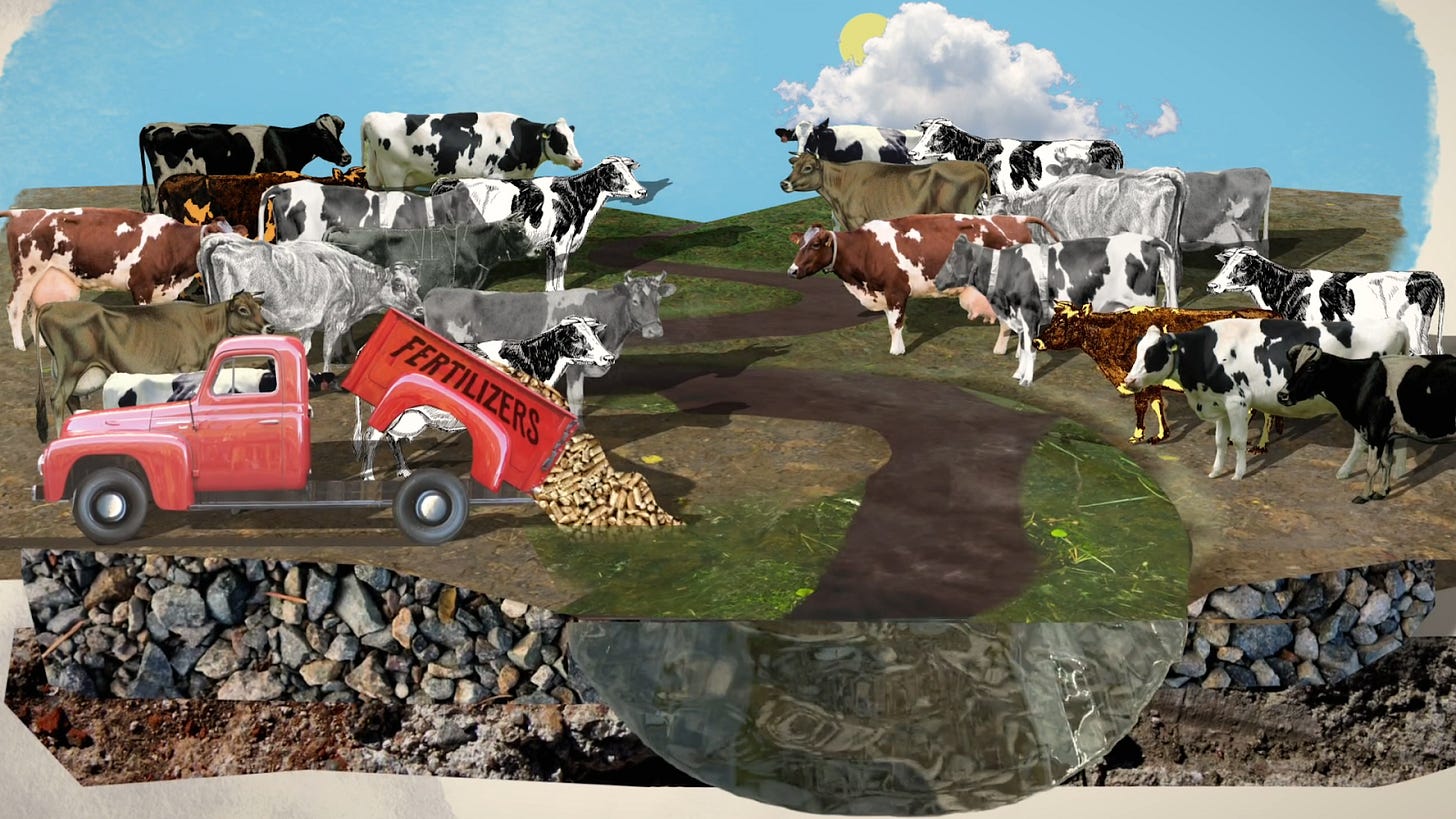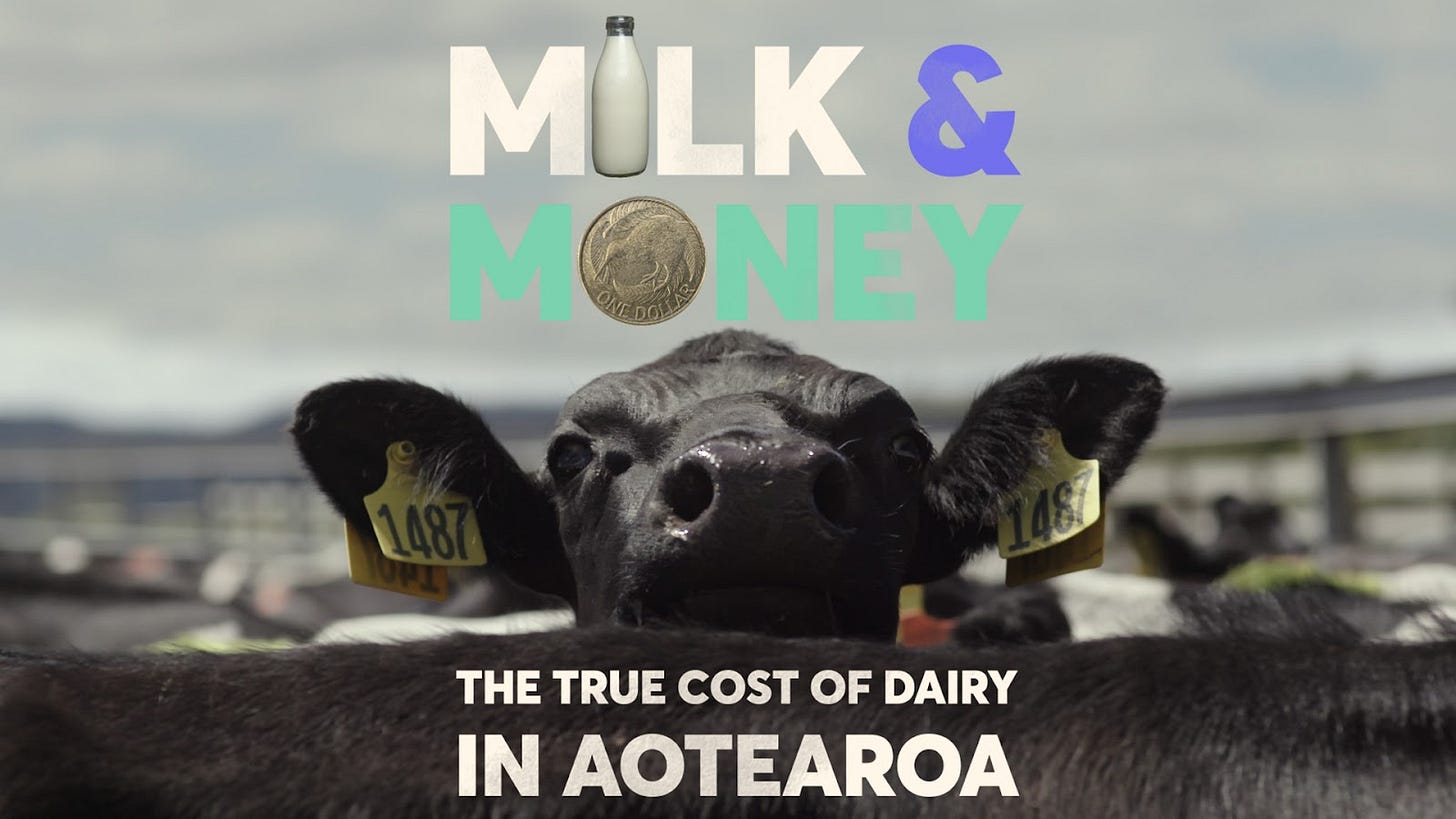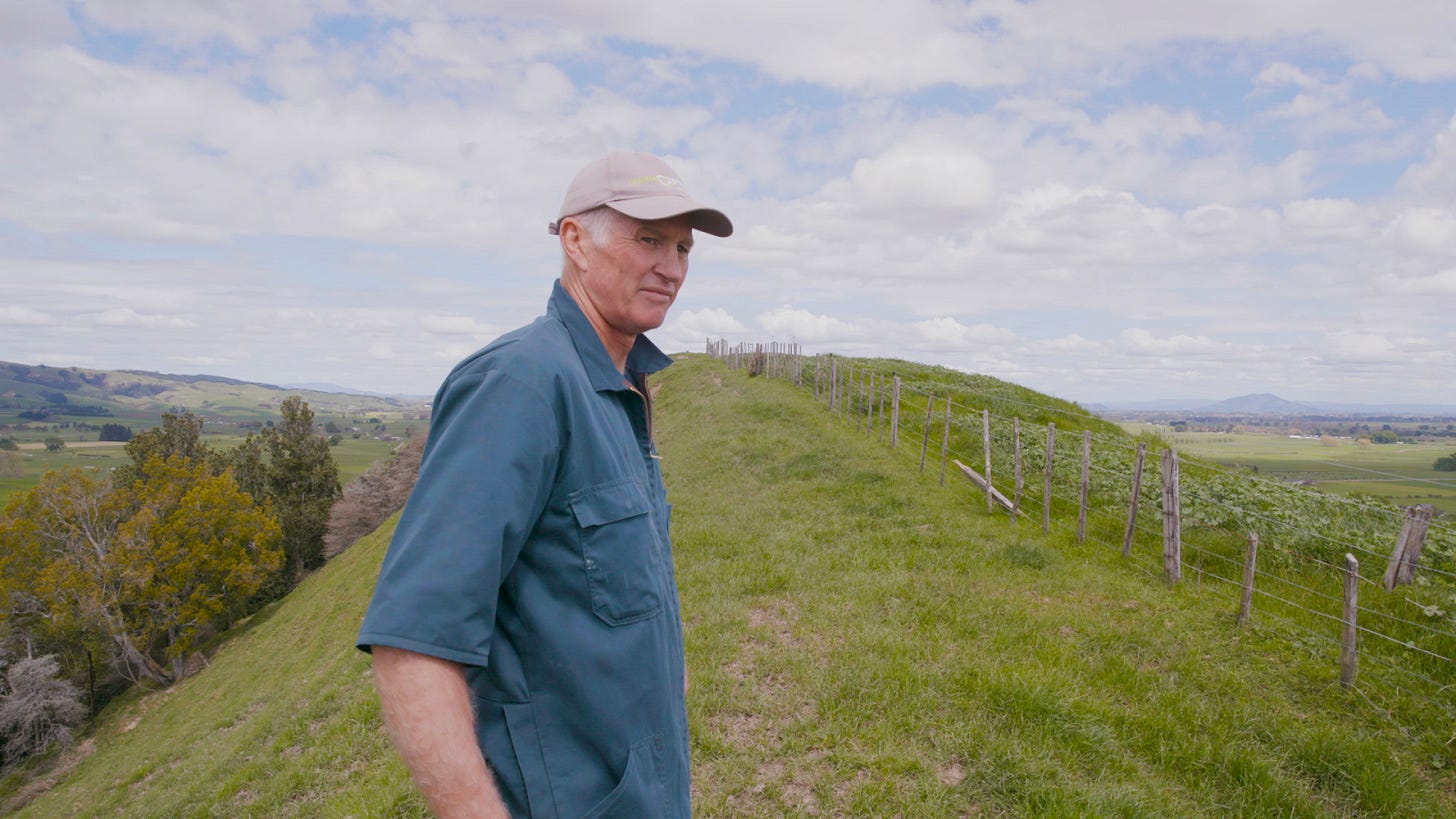🐄Two years ago we did an investigation into NZ’s dairy industry. Has anything changed?
Milk & Money host and journalist Baz Macdonald shares his opinion on the culture shift he has seen in the agricultural sector since since the documentary's launch.
When Re: News released Milk and Money in 2021 I was feeling pretty optimistic about the future of dairy in Aotearoa.
That might surprise you if you’ve seen the series and heard me whinge for six episodes about all the different environmental, cultural and economic issues we’ve seen emerge with the rise of the industry over the past thirty years.
But I felt optimistic because farmers across the country kept saying the same thing - their communities were recognising that something had to change, and were becoming more willing to do so.
Some of these farmers were truly passionate and motivated about this work, but mostly it seemed like a begrudging acknowledgment that their social licence to do as they pleased had run dry and they had no choice but to make a change.
They’d describe conversations at the pub where the consensus was “we all just need to stop bitching and get on with it”.
The cultural shift
But across the last year, I have received calls from half a dozen progressively-minded farmers distressed by how much those pub conversations have shifted in such a short time.
They say the conversation has regressed decades, with the farmers around them increasingly denying their impact on water, soil, and even climate (or that climate change is even real).
These progressive farmers have been fighting for a long time to get their communities onboard, and are really upset at how quickly the acceptance for change has fizzled.
Those hopeful conversations three years ago mostly took place in the brief window after the first Covid-19 lockdown when New Zealand was living free while the rest of the world was in isolation, and we felt capable of taking on any challenge.
That was before the conspiracies and convoy. Before the Groundswell movement protested agricultural regulations in 70 towns across the country. Before the cost of living crisis. Before the cyclone.
You only have to look at the dramatic difference in our last two election results to see there has been a significant cultural shift that has come with all that.
In 2020 over 50% of New Zealanders voted for Labour. Whereas the preliminary results of this election show Labour’s support dropping by half, with a massive swing to National, ACT and NZ First.
All three of those parties campaigned to ease regulation of the agricultural sector, and kick the can of agricultural emissions down the road or away completely.
For instance, National plans to introduce a new rule where for every new piece of agricultural regulation introduced, two must be removed.
This election presented the agricultural sector with a crossroads. They could take a hard road by accepting that new regulations are necessary to make sure the dairy industry is in balance with the environment and climate and can be sustainable long term, or the easy road of ignoring problems and removing regulations that will lead to short-term gains, but also possibly to long-term ruin.
Getting farmers to the point of begrudging acceptance of walking that hard road took so long and was so hard-won by farming leaders, advocates and government.
Who knows how long it will take to reach another crossroads, or if they will pick the other path when they do.
I fear by the time they decide to, it may be too late.
Enough doom and gloom, time for optimism
As I said earlier, the main reason I was hearing farmers say they were ready to change is because they felt it was no longer socially acceptable not to.
That means, now more than ever, we need New Zealanders schooled up on what the issues are with the dairy industry and pushing for change.
Not to toot my own horn, but if you were looking to get yourself up to speed or send something to someone else to do so, we’ve got you covered.
Here are some great starting places to learn about the industry, its impacts, and the ways we could change it to be as sustainable and ethical as possible.
Our six-part series provides a beautiful and engaging look at how the industry operates, where the pressure points are, and what we could do differently. You can watch the whole thing on TVNZ+.
Dairy can’t manage its crap, but innovative farmers are trying to fix that
Speaking of solutions, this article looks at what regenerative farming is and how it looks to address some of the big problems we’re seeing from dairy.
Our dairy industry kills 2 million calves a year, but they don’t have to
If animal rights is your passion, this piece looks at the way the industry treats its calves and how we could dramatically improve that.
Calves, cows, and shit on the face: My week as a dairy farmer
If you want insight into how a dairy farm operates, I spent a week working on one to provide just that.
NZ has so many cows. Why do we import millions of tonnes of dairy?
I heard a rumour while making Milk and Money that New Zealand was importing fresh milk. My investigation into if that’s true brought me to some wild discoveries which give really interesting insight into how the dairy industry operates once the milk has left the farm.
Two thirds of dairy farmers report mental health issues. They tell us why
Ultimately, the dairy industry isn’t very good for the farmers either. This piece looks at the mental health impacts of the job for farmers.
I find this conversation about mental health and work-life balance is a really great avenue for discussing with farmers why the industry needs to change and how it could be better for both the planet and farmers lives.
I don’t know about you, but understanding a problem makes me feel way better about it.
So if you’re feeling concerned about our environment, I hope you find some power in the information Milk and Money provides.
Kia kaha, kia maia.













